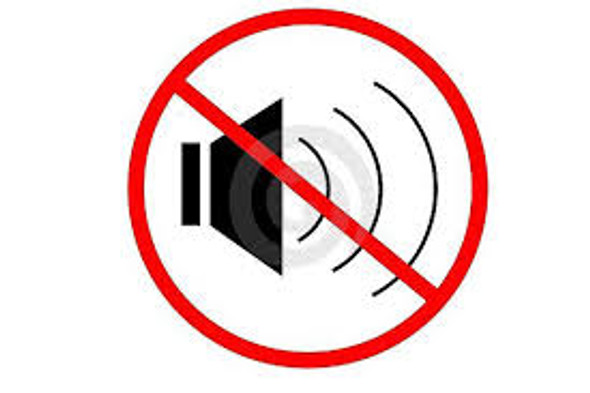Reducing Tire Noise: 10 Proven Tips for a Quieter Ride
There’s nothing quite as frustrating as a noisy ride—especially when that persistent hum, buzz, or roar from your tires drowns out conversations, music, or simply your peace of mind. Tire noise isn’t just an annoyance; it can be distracting and even a sign that something is off with your vehicle.
While road noise is inevitable, reducing tire noise is completely possible with the right techniques. From choosing the correct tires to maintaining them properly and making minor adjustments to your driving habits, you can create a smoother, quieter ride. In this guide, we’ll explore why tires make noise and, most importantly, how to fix it.
Understanding Tire Noise and Its Causes
Before diving into the solutions, it helps to understand why your tires are making so much noise in the first place.
Why Are My Tires So Loud?
The primary source of tire noise comes from the way treads interact with the road surface. As your tires roll, they compress and release air between the grooves, generating sound. The wider or deeper the grooves, the more noise they create. Additionally, the roughness of the road amplifies the sound—driving on freshly paved asphalt is far quieter than a bumpy gravel road.
Common Causes of Excessive Tire Noise
Here are the top reasons your tires might be louder than usual:
- Worn-out tread – As tires wear unevenly, they create irregular noise patterns.
- Improper tire pressure – Overinflated or underinflated tires cause unnecessary road vibrations.
- Misaligned wheels – If your car's alignment is off, one tire might drag slightly, creating more sound.
- Tire material and design – Some performance tires are made with harder rubber compounds that generate more road noise.
- Vehicle weight & suspension – A car with a worn suspension absorbs less noise, making the tires seem even louder.
How Tire Type Affects Noise Levels
Not all tires are created equal—some are naturally quieter than others.
- Touring tires are designed for comfort and have fewer grooves, making them among the quietest.
- Performance tires tend to be noisier because of their aggressive tread patterns.
- Low-profile tires (shorter sidewalls) provide a sportier look but often produce more noise due to less cushioning.
Choosing the right tires is key to reducing unwanted noise—more on that next.
Practical Tips to Reduce Tire Noise
If your car sounds like a jet taking off when you drive, don’t worry—there are several effective ways to make your ride quieter.
Choosing the Right Tires for a Quiet Ride
The best way to minimize tire noise is by selecting the right set of tires from the start. Here’s what to look for:
- Smaller tread blocks – The larger the tread blocks, the more air they trap, increasing noise.
- Softer rubber compounds – Touring and grand-touring tires use softer materials, reducing vibrations.
- Asymmetric tread patterns – These are designed to balance performance and quietness.
Recommended Quiet Tire Models:
Some of the best low-noise tires include:
- Michelin Defender T+H – Excellent tread life and noise reduction.
- Bridgestone Turanza QuietTrack – Specifically designed for a silent ride.
- Continental PureContact LS – A great balance of comfort and perform
Proper Tire Maintenance for Noise Reduction
Even the quietest tires can become noisy if they aren’t well-maintained. Here’s how to keep them in top shape:
- Rotate your tires regularly – Every 5,000 to 7,500 miles helps prevent uneven wear.
- Check tire pressure – Use a tire gauge weekly and keep them at the recommended PSI.
- Balance and align your wheels – Misalignment can cause uneven wear and increased noise.
Soundproofing Your Vehicle for Extra Noise Reduction
If your tires are still too loud, consider adding some soundproofing enhancements to your car:
- Install sound-dampening mats – Materials like Dynamat or Noico can be added to floors and wheel wells.
- Upgrade wheel well liners – Foam or rubberized coatings absorb vibrations.
- Check door and window seals – Proper seals prevent excess road noise from creeping in.
Adjusting Driving Habits to Minimize Noise
The way you drive can also impact tire noise. Quick accelerations, sharp turns, and aggressive braking wear down your tires unevenly, increasing noise over time. Here are some tips:
- Drive smoothly – Avoid sudden maneuvers that stress the tires.
- Stick to well-paved roads – Rough surfaces amplify road noise significantly.
- Slow down on highways – Higher speeds lead to more tread friction and increased noise.
When to Replace Tires for a Quieter Ride
- Tread depth is below 2/32 of an inch – Use the penny test: if Lincoln’s head is visible, it’s time for new tires.
- Irregular tread wear patterns – Cupping or feathering creates excessive road noise.
- Persistent vibration – Even after balancing, old tires can create noise due to internal wear.
Cost vs. Comfort: Investing in Noise-Reducing Tires
If noise is a major concern, investing in premium quiet tires can be worth the extra cost. While budget tires may save money upfront, high-quality, low-noise tires last longer and provide a more comfortable ride.
Conclusion
A noisy ride isn’t just an inconvenience—it can affect your driving comfort, focus, and overall experience. Fortunately, by choosing the right tires, maintaining them properly, and making a few soundproofing upgrades, you can significantly reduce tire noise and enjoy a smoother, quieter ride.
So, whether you're commuting to work or heading out on a road trip, follow these tips to make sure your drive is as peaceful as possible. Your ears—and your passengers—will thank you!

